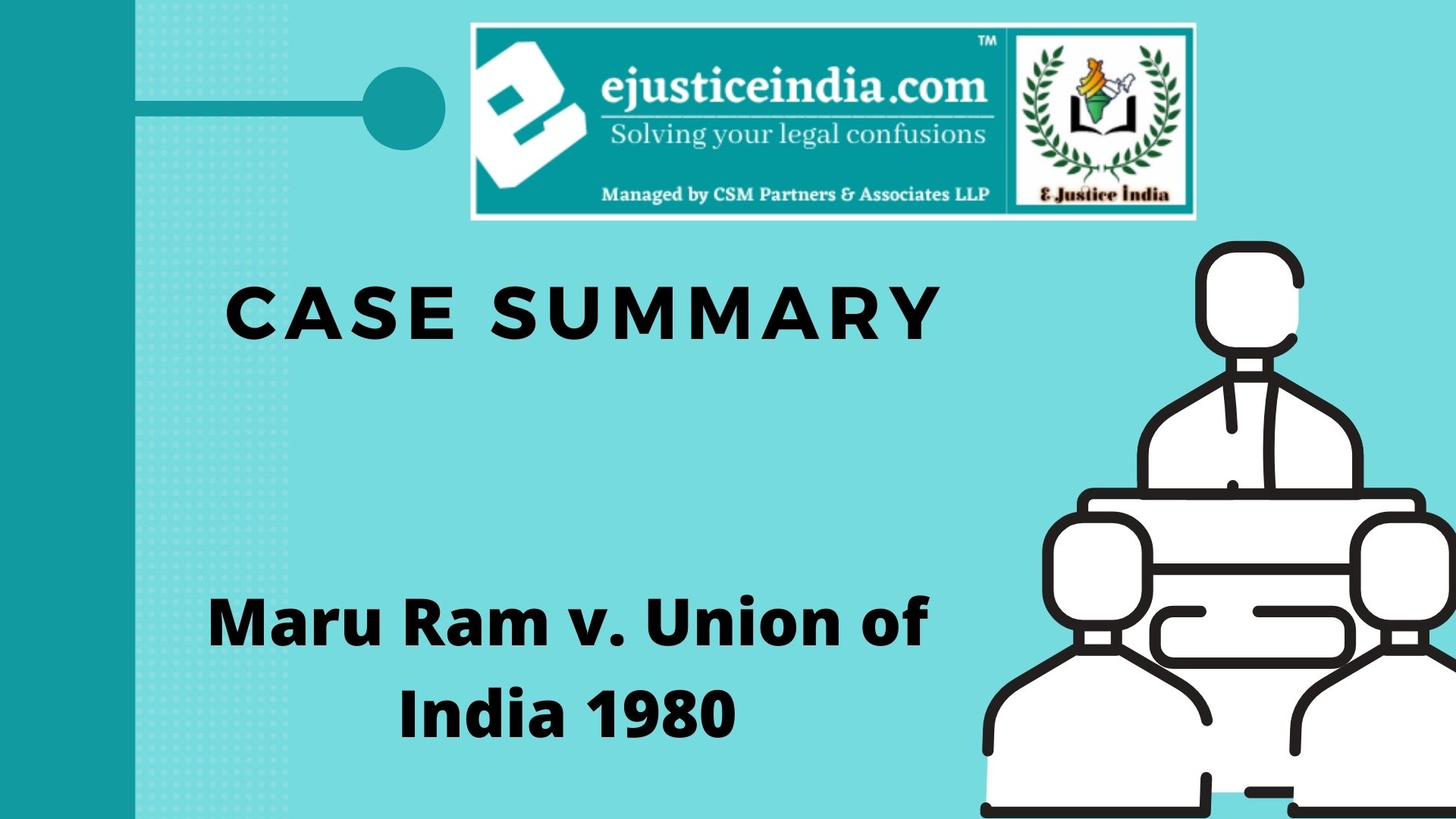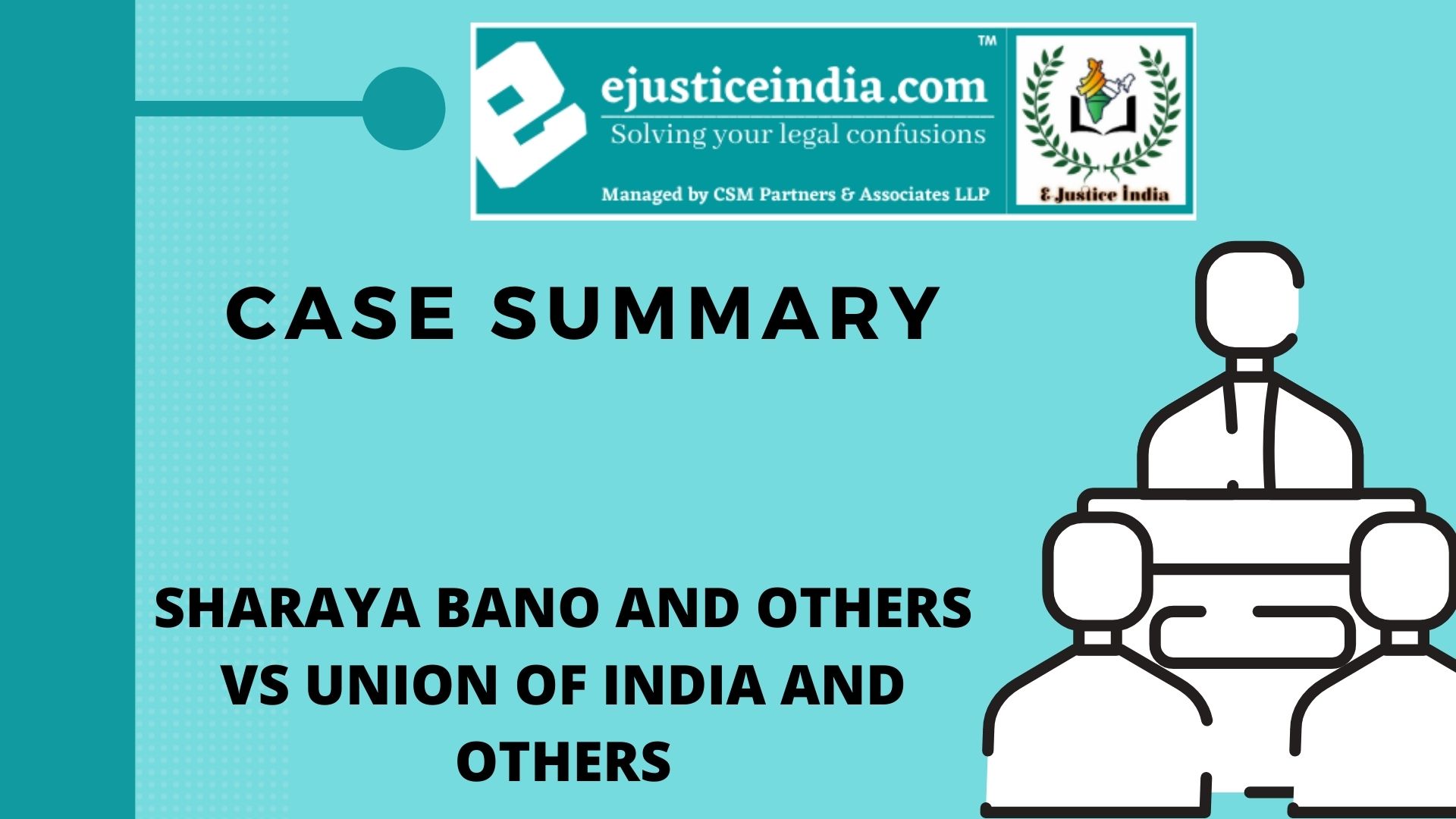Case Summary: Bhagwan Swaroop v. State Of Madhya Pradesh
Author: Ishita Arora
Citation
1992 AIR 675, 1992 SCR (1) 466
Bench
Justice Kuldip Singh and Justice R.M. Sahai.
Introduction
In the present case, a Special Leave Petition under Article – 136 of the Constitution of India was filed by the appellant against the order of conviction made by the High Court and Trial Court under section – 302, 307 of IPC and section – 25A of the Arms Act.
Facts of the case
The deceased, his father and his brother were living in the house which was by Bhagwan Swaroop, appellant’s father. There was a dispute between Bhagwan Swaroop and the complainant party related to a piece of land which the complainant party was forcibly occupying, according to the appellant. One day, appellant’s father had an argument with the deceased’s brother. Then, he went to deceased’s home and started abusing the complainant party and started destroying the tin-shed which was on the disputed land. Due to this, the deceased’s brother went to the police station to file a complaint. At this point, the deceased came at the spot and started beating appellant’s father. He fell down. Then, he immediately shouted appellant’s name and asked him to kill the complainant party using a rifle. The appellant using the rifle fired a shot at the deceased. The deceased fell down and succumbed to gunshot injury.
Issues and facts of law
- Whether the appellant can claim right of private defence?
Judgement
The Court observed that the appellant’s father was given lathi blows by the complainant party and due to this the gun-shot was fired by the appellant to save his father. A lathi can cause a simple and a fatal injury as well, it does not matter that the injuries actually caused were simple or grievous. In the present case, the father was being beaten by the lathi. In such a situation a son gets a reasonable apprehension that there is danger to the life of his father and at this point firing a gun-shot in defence of his father is justified. The Court also observed that using the licensed gun of the father in the situation of the present case cannot be considered as possessing an arm without a license.
Hence, the appeal was allowed and the Supreme Court set aside the conviction of appellant Bhagwan Swaroop under Section – 302, 307 of IPC and Section -25 of Arms Act made by the High Court and acquitted him on all these grounds.


